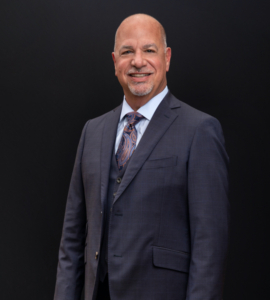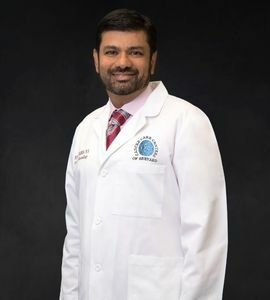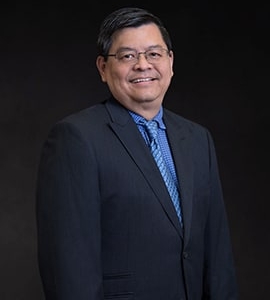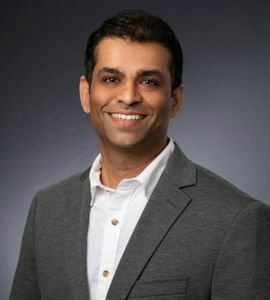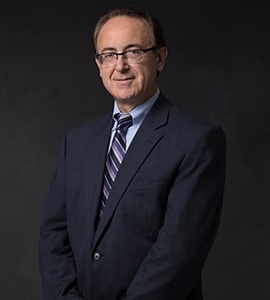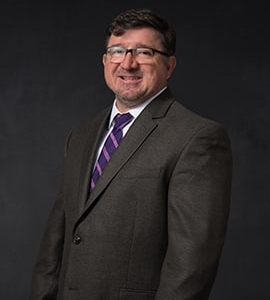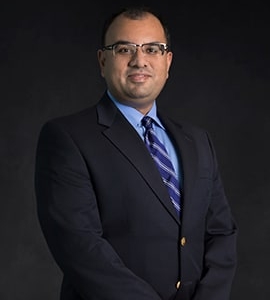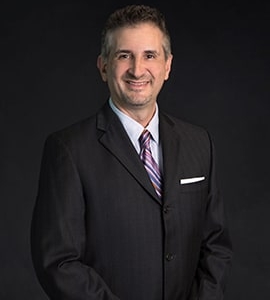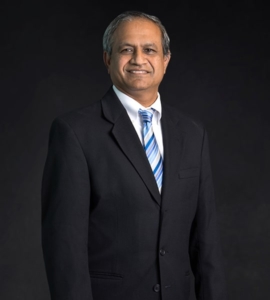Newly Diagnosed Lung Cancer Patients
A lung cancer diagnosis can leave you feeling emotionally overwhelmed and wondering what is next. Treatment for lung cancer has advanced significantly in recent years, and the most important thing you can do is play an active role in your cancer care.
If you have been recently diagnosed with lung cancer, here are a few things that can make your treatment smoother.
What Types of Doctors Treat Lung Cancer?
The cancer care team for lung cancer is likely to include several types of physicians:
A medical oncologist - often takes the lead on the patient’s lung cancer treatment, working with the other types of physicians as they are needed throughout the treatment process
A radiation oncologist - not every patient receives radiation therapy for lung cancer. However, if you do, a specialist in radiation therapy will be a part of the team.
A pulmonologist - a lung specialist
A thoracic surgeon - a surgeon who specializes in the chest and lungs.
In addition to the medical treatments, our team will assist you with important aspects of cancer care, including nutritional counseling, emotional support, side effect management, and more.
Should You Get a Second Opinion about a Lung Cancer Diagnosis?
Once you have received a diagnosis, it is critical that you understand it and work closely with the oncologist who will oversee your treatment. Additionally, you may choose to get a second opinion before you start a treatment plan. This is normal, and we strongly encourage patients to take advantage of the available resources. The oncologists at Cancer Care Centers of Brevard frequently provide second opinions for patients. While most insurance plans cover second opinions, it is important to check your coverage before seeing another oncologist.
If you have been given an initial diagnosis and are seeking a second opinion, contact the Cancer Care Centers of Brevard today to schedule your appointment. Our team can help you understand the initial diagnosis and will thoroughly evaluate your condition to ensure you receive the proper diagnosis and treatment plan.
What is Staging of Lung Cancer and What Stage am I?
If you have only been told that lung cancer is present, the doctors may not know the extent of your cancer just yet. Has it spread to other parts of the body? Is it in just one lung? etc.
The medical oncologist will conduct several different tests, sometimes after your first oncology appointment, to gather more information about whether the cancer has spread, how large the tumor is, etc.
Once the information is gathered, a lung cancer stage can be determined. Staging plays an important role in determining which treatments are recommended for you.
Small-Cell Lung Cancer Stages
Small-cell lung cancer can be categorized into two stages. In the limited stage, the cancer cells are found only in one lung. In the extensive stage, the tumor spreads to other areas of the chest and the fluid surrounding the lungs.
Non-small Cell Lung Cancer Stages
Non-small cell lung cancer can be categorized into six stages. It starts with the occult stage (also called the hidden stage), when cancer cells are hard to detect even through a bronchoscopy.
Stage 0, abnormal cells can be detected along the lining of the air passages in the lungs.
Stage 1, the abnormal cells turn cancerous.
- Stages 2 to 4, the lung cancer cells continue to grow and reach different parts of the body.
Stage 2 can be identified by the spread of cancer to the lymph nodes near the lungs.
Stage 3 indicates further spread in the lymph nodes and into the middle of the chest.
Stage 4 lung cancer indicates that the cancer has spread throughout the body and may be found in the bones, brain, or liver.
Which Lung Cancer Treatments Will I Need?
Every patient's treatment plan is different based on the type of lung cancer, its stage, and overall health condition. The cancer care team will consult with one another based on the protocols known to work for your lung cancer diagnosis and then recommend a treatment plan to you. You can learn more about lung cancer treatment options available through Cancer Care Centers of Brevard, working together with thoracic surgeons.
Be sure you talk with your oncologist and ask questions. There are no dumb questions, especially when it comes to your health and understanding your lung cancer treatment plan, the timing of each treatment, and how they will know if it’s working.
Questions to Ask During Your First Appointment
It’s normal to feel worried and confused before you meet your oncologist for the first time. At Cancer Care Centers of Brevard, we want you to feel comfortable and cared for. Our goal is to provide comprehensive care and guide you through the process.
We recommend you come with a friend or family member to your first appointment, and be prepared to spend an hour with our cancer care team. It’s also a good idea to bring a notebook to write down answers to your questions.
Here are a few questions that can help you better understand your situation and treatment options.
Are there programs available to help quit smoking?
Can you recommend or prescribe any medications to help with nicotine cravings?
What type of lung cancer do I have? What are the available treatments?
What are the side effects of the treatment options?
What are the risks of not receiving treatment?
When should I visit my primary care doctor vs. contact my oncologist when I have medical concerns?
Is surgery part of my treatment plan? If so, what are the risks and the likelihood of a positive outcome?
What kinds of lifestyle changes should I consider? Are there specific activities to avoid or add to my routine?
Are there specific foods or drinks to avoid or that I should consume while undergoing treatment?
Are there any clinical or research trials that I could participate in?
Are there support groups or counseling that would be available to me or my family
Choosing Cancer Care Centers of Brevard for Expert Lung Cancer Treatment
Cancer Care Centers of Brevard is the only independent oncology practice and cancer research institute in Brevard County, located in Melbourne, Merritt Island, Palm Bay, and Rockledge. CCCB offers personalized care plans tailored to each patient’s diagnosis using advanced cancer treatments and innovative clinical trials. Our compassionate oncologists provide the latest therapies in a comfortable, supportive environment. Often, cancer treatment is available at lower costs at a community oncology practice than hospital-based facilities while offering patients access to the same high-quality cancer care.
Request a Consultation With One of Our Lung Cancer Specialists
We understand the significance of a cancer diagnosis, and you are not alone. Lung cancer specialists from the Cancer Care Centers of Brevard will help you through every step of this challenge.
We care for your overall health and ensure that your treatment is customized to your specific health demands. In addition to the different diagnostic tests and treatment options, we help you with other support services such as financial counseling, insurance, access to relevant clinical trials, educational resources, and more. Find a location near you to request an appointment with an oncologist in Brevard County.
